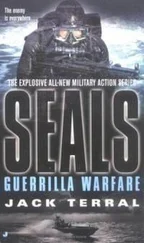Today, more than 45 years after the events described in this book, North Korea is still a dangerous threat to peace and stability in Northeast Asia. Its economy is a shambles and its citizens are impoverished and underfed. Its armed forces remain large and potent, and its new, 28-year-old leader, Kim Jong-un, seems bent on producing nuclear weapons and the long-range missiles needed to deliver them. The United States still conducts reconnaissance forays and North Korea still strives to fend them off. In 2003, four North Korean MiG jets tried to force down an unarmed RC-135 spy plane. Despite the risk of being attacked, the American aircrew resisted communist demands to land (one MiG pilot flew to within 50 feet of the RC-135 and gave hand signals for it to descend) and flew back to their base in Japan.
Why should the Pueblo ’s sole mission, bungled so long ago, matter to us now? Without a doubt, unremitting surveillance by American ships, aircraft, satellites, and human agents around the globe has helped us better understand our foes’ strengths and weaknesses. For diplomats trying to preserve the peace, or military strategists trying to win a war, the importance of accurate, timely intelligence cannot be overstated. But snooping on other countries is inherently provocative. (Indeed, North Korea regarded the Pueblo ’s activities as an “act of war.”) Since intelligence collection often carries the potential to set off an international crisis or even war, we as citizens must endeavor to restrain excessive risk taking and recklessness on the part of our professional watchers.
In order to be effective, clandestine reconnaissance missions must, of course, be clandestine. Risk-to-reward ratios can’t exactly be debated in public before such operations are set in motion. In our democracy, we depend on Congress—especially members of the House and Senate intelligence committees—to provide close and continuous scrutiny of the nation’s spy agencies. (The news media occasionally reveal details of intelligence operations, although usually after the fact.) Congressional oversight isn’t always as robust as it should be, however. Members of Congress had little, if any, advance knowledge of how much risk was involved in the Pueblo ’s doomed journey to the Sea of Japan. It was only later that investigators uncovered the false assumptions, negligent planning, and embarrassingly inadequate equipment that culminated in the vessel’s capture and set the stage for a dangerous showdown between the United States and North Korea.
As we unleash spies and covert operations against a growing list of twenty-first-century adversaries, we’d do well to remember the painful lessons of the Pueblo .
The strange little ship lay at the far end of the pier, rolling gently in the morning chop. Ensign F. Carl Schumacher stared at it from the bucket seat of his Porsche, then got out and walked down the dock, brimming with anticipation.
Schumacher didn’t know much about the diminutive boat that was to be his new home. It certainly stood out from the vast gray warships cruising majestically through San Diego Bay, many of them bound, in that autumn of 1967, for the Vietnam War. Just 176 feet long, the USS Pueblo was smaller than some Navy tugboats. With no deck guns and a poky top speed of 13 knots, it was unfit for serious combat at sea. Indeed, the canvas awning that shaded its afterdeck made the Pueblo look more like a tramp steamer than a naval vessel, with one curious difference: Its topsides bristled with tall antennae, swaying in the breeze like giant fishing rods.
Though Schumacher hadn’t been told yet, the Pueblo was an electronic intelligence collector—a spy ship—newly outfitted to eavesdrop on military installations along communist coastlines in the Far East. Before its conversion to seagoing ferret, the Pueblo had been an Army cargo ship, hauling food and supplies to remote South Pacific island bases after World War II. Given its lowly pedigree, some of its crewmen jokingly compared it to the USS Reluctant , the down-at-the-heels Navy freighter in the movie Mister Roberts .
“Skip” Schumacher was 24 years old, a bright, perceptive Missourian who relished arguing about philosophy and trading humorous barbs with relatives and friends. Slim and blond, he had a sly smile, an unexpectedly deep voice, and a young man’s studiedly cynical facade. The son of an affluent St. Louis insurance broker, he’d had a privileged youth, attending a local prep school and a private college, Trinity, in Connecticut. After graduating, he signed on as a Navy officer candidate, mostly to make sure he didn’t get drafted into the Army and shot up in some Indochinese rice paddy.
His first sea assignment had been aboard a refrigeration ship that delivered food and beer to the busy aircraft carrier crews at Yankee Station in the Gulf of Tonkin. It was safe, dull duty, and Schumacher wanted a bit more adventure. When his transfer orders to the Pueblo arrived, he immediately tried to find out what sort of boat it was. Nobody seemed to know, and, mysteriously, it wasn’t listed in the Navy directory of ships. Several weeks later, Schumacher got a letter from the Pueblo ’s executive officer, telling him only that the vessel was to conduct “oceanographic research” in the Sea of Japan. That was the spy ship’s cover story. For its public commissioning ceremony in Bremerton, Washington, the Navy had gone so far as to bring in a local college professor to extol the Pueblo ’s anticipated contributions to helping mankind extract more food from the sea.
Seeing it now for the first time, Schumacher wondered whether the Pueblo could even stay upright in a storm. He’d never seen a Navy ship so small that its gangplank led down from the dock rather than up. Nonetheless, he saluted its American flag, marched over the gangway, and presented his orders to a petty officer.
Schumacher was taken on a tour of the ship and then to lunch in the wardroom. As he sat down, conversation among the other officers fell off; that usually happened when a new face appeared in officer country.
The lull didn’t last long.
The Pueblo ’s captain burst into the compartment like a sudden clap of thunder over a calm sea. Tough, charismatic, and cheerfully profane, Commander Lloyd M. Bucher had just turned 40. His arms bulged with muscle and his eyes shone with intelligence and a touch of mischievousness. He had a handsome, square-jawed face, an easy grin, and a bullhorn of a voice that could stop a belowdecks fistfight cold. To Schumacher, the skipper’s presence seemed to electrify the very air around him.
Even seated Bucher had a dynamic quality. While one big hand shoveled food into his mouth, the other switched on a tape player mounted in the bulkhead, filling the wardroom with the rollicking ballads of Johnny Cash. Schumacher was introduced and the captain’s right hand shot out in greeting. “Glad to have you,” he boomed. “Where’d you come from?” Badly intimidated by his new boss, the young ensign stammered a few words of personal history.
Bucher was an ex–submarine officer, a superb navigator and ship handler. In the late 1950s, he’d served aboard subs with the delicate and dangerous job of eavesdropping on Soviet naval activities in the North Pacific; in the early sixties, he’d planned such missions for a Japan-based sub squadron. A voracious reader, he kept a set of Shakespeare’s works in his stateroom. He played chess with merciless speed and waded into barroom brawls with happy abandon; a friend aptly described him as an “intellectual barbarian.”
A taskmaster at sea, Bucher was a major-league drinker and party animal onshore. With his loud singing and even louder off-duty outfits, he was often the center of attention at officers’ clubs and wharfside dives alike. For all that, he was a surprisingly sensitive man, given to choking up in emotional moments. He preferred to be called by his boyhood nickname, Pete.
Читать дальше












